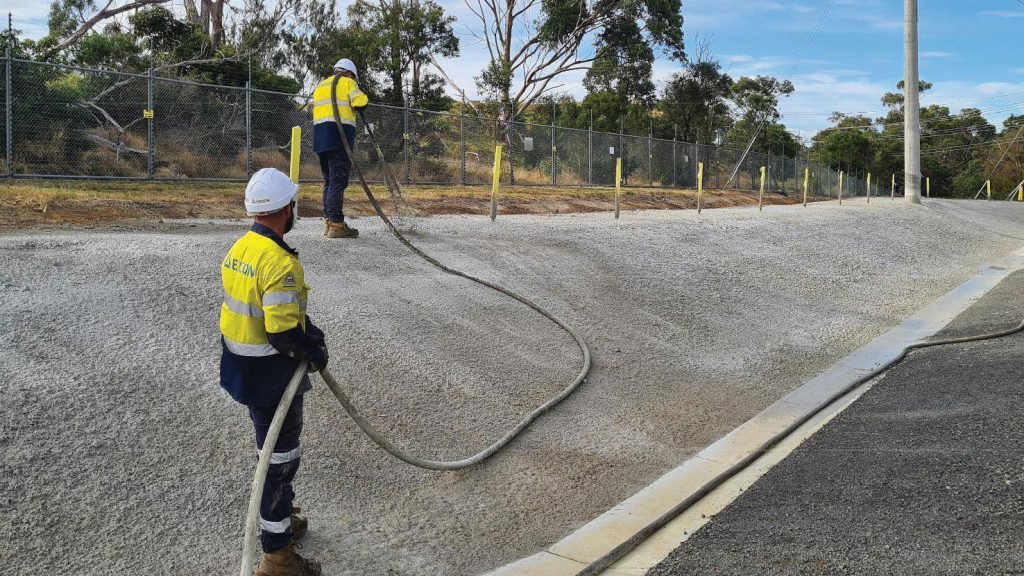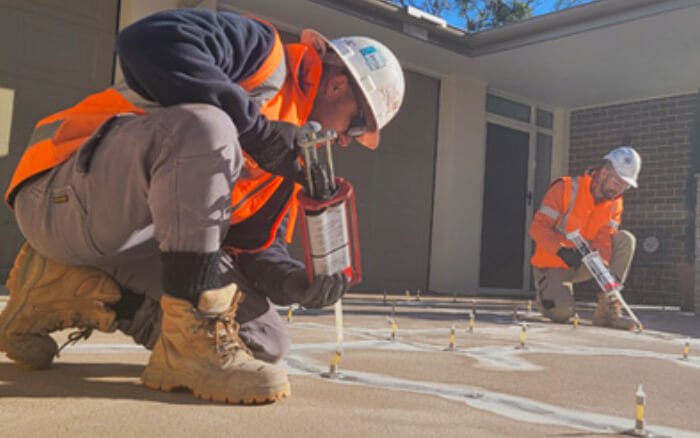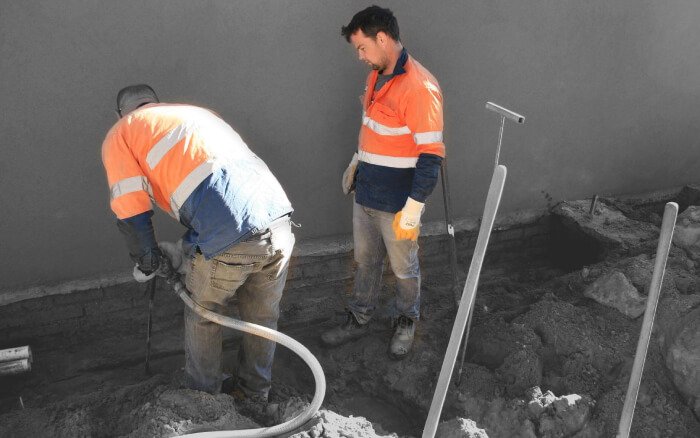What is Soil Stabilization?
 Soil stabilization is a process used to improve the properties of soil, enhancing its strength, durability, and load-bearing capacity. This technique is often used to prepare soil for construction projects by preventing issues like erosion, settlement, and instability. Through stabilization, weak soils can be transformed into a solid base suitable for foundations, roads, pavements, and other structures.
Soil stabilization is a process used to improve the properties of soil, enhancing its strength, durability, and load-bearing capacity. This technique is often used to prepare soil for construction projects by preventing issues like erosion, settlement, and instability. Through stabilization, weak soils can be transformed into a solid base suitable for foundations, roads, pavements, and other structures.
How Does Soil Stabilization Work?
Soil stabilization involves treating the soil to improve its physical properties, such as its compaction, strength, and moisture content. The process may vary depending on the type of soil and the specific requirements of the project. Some common methods of soil stabilization include:
- Chemical Stabilization: This method involves the addition of chemical agents (such as lime, cement, or polymers) to the soil. These chemicals react with the soil particles, enhancing their bonding and improving the soil’s strength and durability.
- Mechanical Stabilization: Mechanical stabilization involves physical processes like compacting and mixing soil to improve its structure. This method is often used to increase the density of the soil and reduce its plasticity.
- Bituminous Stabilization: In this process, bitumen is mixed with the soil to improve its moisture resistance, making it ideal for roads and pavements in areas with high moisture content.
- Gravel or Sand Stabilization: Adding materials like gravel or sand to the soil can enhance its load-bearing capacity and improve drainage properties.

Benefits of Soil Stabilization
Soil stabilization offers numerous benefits, including:
- Improved Load-Bearing Capacity: Stabilizing the soil increases its strength and helps distribute the weight of structures more evenly, reducing the risk of settlement.
- Enhanced Durability: Soil stabilization enhances the lifespan of construction projects by preventing soil erosion, cracking, and other forms of damage caused by unstable soil.
- Cost-Effective: Soil stabilization can often be more cost-effective than removing and replacing unsuitable soil, reducing project costs and time.
- Better Drainage: Certain soil stabilization methods improve the drainage properties of soil, preventing water accumulation and reducing the risk of flooding or soil erosion.
- Environmental Benefits: Stabilizing soil using sustainable materials like lime or cement helps improve the soil's resistance to environmental factors, reducing the need for frequent maintenance and repairs.
Applications of Soil Stabilization
Soil stabilization is widely used in various construction applications, including:
- Road Construction: Soil stabilization is often used in road construction to create a strong, durable foundation that can withstand traffic loads and adverse weather conditions.
- Building Foundations: Stabilized soil provides a solid base for constructing buildings, ensuring that foundations are stable and secure.
- Airfields and Runways: Soil stabilization is crucial for the construction of airfields and runways, where soil must be capable of supporting heavy aircraft loads.
- Landfills: Stabilized soil is used in landfills to provide better containment and prevent contamination of surrounding areas.
- Pavement and Parking Lots: Stabilized soil improves the strength and durability of pavement and parking lot surfaces, ensuring long-lasting performance.
Types of Soil Stabilizers
Various stabilizing agents can be used to treat the soil. Some of the most common types include:
- Lime: Lime is commonly used to stabilize clay soils, reducing plasticity and improving compaction. It is ideal for improving the workability of soils.
- Cement: Cement stabilization improves the strength and durability of soil, making it ideal for use in road construction and foundation projects.
- Polymers: Polymer-based stabilizers help bind soil particles together, providing enhanced strength and resistance to environmental factors.
- Fly Ash: Fly ash is a byproduct of coal combustion and is used as a soil stabilizer, improving soil strength and reducing its susceptibility to erosion.
- Bitumen: Bituminous stabilizers are used primarily in road construction and pavement projects, offering enhanced moisture resistance and flexibility.
Why Choose Soil Stabilization?
Soil stabilization is a critical aspect of construction that ensures the stability and longevity of structures. Here are some reasons why you should choose soil stabilization for your next project:
- Improved Structural Integrity: Stabilized soil provides a strong foundation for construction, ensuring the stability and longevity of structures.
- Cost Savings: Stabilizing the soil on-site is often more economical than transporting and replacing large quantities of unsuitable soil.
- Time Efficiency: Soil stabilization can be completed quickly, reducing project timelines and allowing for faster construction.
- Environmental Sustainability: Using natural stabilizers like lime or cement promotes sustainability by reducing the need for chemical treatments and minimizing environmental impact.
Conclusion
Soil stabilization is an essential process in modern construction that helps enhance the strength, durability, and load-bearing capacity of soil. Whether for road construction, foundation work, or pavements, soil stabilization ensures the stability of structures and reduces the risk of long-term damage. With a variety of stabilization techniques and stabilizing agents available, soil stabilization offers a reliable, cost-effective, and environmentally friendly solution for preparing soil for construction projects.











































